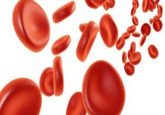Inflammatory, insulin resistance metabolic markers and pancreatic cancer: quo vadis?

Pancreatic cancer is an aggressive and often fatal malignancy with an overall mortality to incidence ratio of 0.98. In 2012, 338,000 new cases were diagnosed worldwide and 330,000 deaths were recorded [1]. In the USA, pancreatic cancer is currently the fourth leading cause of cancer death, but it is projected to become the second leading cause before 2020 [2]. The 5-year survival rate (<5%) is lower than that of all other major cancers. Standard treatment is cytotoxic chemotherapy, which can be effective, but disease progression generally ensues within 6–12 months. The only potentially curative therapy is surgery, but less than 20% of patients are candidates for surgery and among those who undergo surgery, the 5-year survival rate is 15%, highlighting the fact that the vast majority of patients have occult metastatic disease at the time of presentation. Population-based screening programs for pancreatic cancer are not feasible owing to the very low absolute individual risk, as well as the lack of noninvasive and low-cost screening tools. Hence, identifying biomarkers of risk that could be useful in high-risk individuals is essential.
Click here to view full article.





